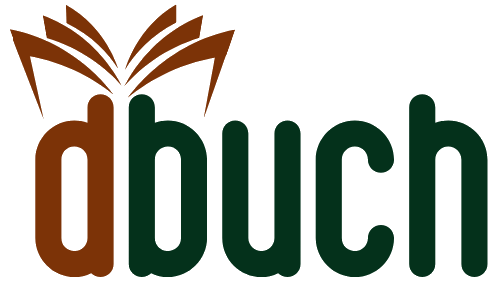dBuch: Revolutionizing Book Sharing to Reduce Environmental Impact and Promote Reuse
In a world increasingly focused on sustainability, dBuch is pioneering a movement that addresses one of the more overlooked aspects of environmental conservation: book waste. While books are treasured for the knowledge and entertainment they provide, their production, distribution, and eventual disposal come with a significant environmental cost. dBuch is not just a platform—it’s a community-driven initiative designed to reduce this impact by promoting book sharing and reuse.
The Environmental Cost of Book Waste
To understand the importance of dBuch’s mission, we must first recognize the environmental toll of book production and disposal. The process of creating a single book involves several stages, each contributing to its overall carbon footprint:
- Deforestation and Resource Use: The majority of books are made from paper sourced from trees. This demand for wood contributes to deforestation, a leading cause of habitat destruction, biodiversity loss, and climate change. Moreover, the paper production process requires large amounts of water and energy, further straining our planet’s resources.
- Energy-Intensive Production: Beyond paper, the printing of books consumes substantial energy and involves the use of inks and other chemicals that can be harmful to the environment if not managed properly. The manufacturing process itself generates pollution and greenhouse gas emissions.
- Distribution Footprint: Once printed, books are distributed globally, often transported by air, sea, or road. This extensive distribution network relies heavily on fossil fuels, adding to the overall carbon emissions associated with each book.
- Waste and Landfill Contributions: Books that are no longer needed often end up in landfills, where they take years to decompose, releasing methane, a potent greenhouse gas. Even recycling, though better than disposal, has its limits and environmental costs.
Given these factors, the environmental impact of book production and disposal is undeniable. But this is where dBuch steps in, offering a solution that not only reduces waste but also fosters a culture of sustainability and sharing.
How dBuch Reduces Environmental Impact
dBuch’s platform is designed to extend the life cycle of books, significantly lowering the demand for new copies and minimizing waste. Here’s how dBuch helps in reducing the environmental impact of books:
- Promoting Book Sharing and Reuse:
- At its core, dBuch is a book-sharing platform that encourages users to exchange, lend, and give away books rather than discarding them. By facilitating the circulation of books within a community, dBuch ensures that each book is read by multiple people over its lifetime, reducing the need for new books to be produced.
- Reducing Demand for New Books:
- By providing a marketplace where users can buy and sell both old and new books without any commission fees, dBuch helps reduce the demand for freshly printed books. This not only cuts down on the resources required for production but also lowers the carbon emissions associated with the manufacturing and distribution of new books.
- Minimizing Book Waste:
- Through its platform, dBuch helps keep books out of landfills by offering users the option to donate or exchange books they no longer need. This reduces the amount of waste generated and ensures that books remain in circulation, benefiting more readers.
- Supporting a Circular Economy:
- dBuch aligns with the principles of a circular economy, where the focus is on keeping products in use for as long as possible. By promoting the reuse and sharing of books, dBuch contributes to a system where materials are continually repurposed, reducing the strain on natural resources and decreasing waste.
Fostering a Community of Sustainable Readers
Beyond its environmental benefits, dBuch is building a community of readers who are conscious of their ecological footprint. The platform encourages users to think critically about their consumption patterns and make choices that are better for the planet. By participating in book sharing and reuse, dBuch users are not only saving money but also taking an active role in environmental conservation.
- Encouraging Generosity and Sharing:
- dBuch fosters a culture of generosity by making it easy for users to give away books they no longer need. This spirit of sharing not only benefits others who might be looking for specific titles but also reduces the number of books that go to waste.
- Creating Accessible Reading Opportunities:
- By removing financial barriers and offering a platform where books can be exchanged or borrowed for free, dBuch makes reading more accessible to everyone. This democratization of knowledge is vital in building informed, engaged communities.
- Raising Awareness:
- dBuch also plays a crucial role in raising awareness about the environmental impact of book waste. Through its platform, users can learn about the benefits of sustainable reading practices and the importance of reducing their ecological footprint.
Join the Movement: How You Can Help
As a reader, you have the power to make a difference. By joining dBuch, you become part of a larger movement towards sustainable reading and environmental stewardship. Here’s how you can get involved:
- Start Sharing: List your books on dBuch and find new homes for them. Whether you’re exchanging, lending, or giving away, every book that stays in circulation contributes to reducing waste and conserving resources.
- Buy and Sell Responsibly: Use dBuch’s commission-free marketplace to buy and sell books. By choosing secondhand options, you’re helping to reduce the demand for new books and supporting a more sustainable model of consumption.
- Spread the Word: Help us grow the dBuch community by sharing our mission with others. The more people who participate, the greater our collective impact on reducing book waste and promoting environmental sustainability.
Conclusion: dBuch’s Vision for a Greener Future
In a world where the environmental impact of our choices is becoming increasingly apparent, platforms like dBuch offer a practical and impactful solution. By promoting book sharing and reuse, dBuch not only reduces the environmental footprint associated with book production and waste but also fosters a community dedicated to sustainability.
Together, we can make a difference—one book at a time. Join dBuch today and help us create a greener, more sustainable future for readers and the planet alike.

